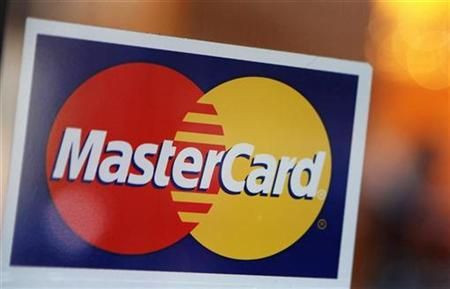MasterCard Plans To Approve Online Purchases Using Facial Scans

MasterCard plans to harness the power of the selfie to fight fraud. The company's small pilot program is an attempt to use fingerprints and facial scans to cut back on online shopping fraud. The program launches this fall and will be a limited experiment with only 500 participants, but MasterCard is expected to release the security measure worldwide at a later date, CNNMoney reported Wednesday.
When MasterCard holders currently shop online, the company offers them a “SecureCode” option which requires a password. The new program, though, will give users a fingerprint scan and facial recognition option. MasterCard is partnering with smartphone makers including Apple, BlackBerry, Google, Microsoft and Samsung to make the facial recognition feature possible.
"The new generation, which is into selfies ... I think they'll find it cool. They'll embrace it," said Ajay Bhalla, president of enterprise security solutions at MasterCard, according to CNNMoney.
The facial recognition process is simple. After downloading the MasterCard phone app, a pop-up will ask for user authorization after paying for a purchase. Users will look at the camera and blink once. Then, the facial recognition scan will map out the user’s face, convert it to 1’s and 0’s and then transmit the facial scan to MasterCard's network.
While some cybersecurity experts are uncomfortable with data being stored on company computers, others believe that by not reconstructing the user’s entire face and only storing an algorithm, the data will be safe. "They're storing an algorithm, not a picture of you. And I'm sure they're doing the appropriate stuff to guard it," said Phillip Dunkelberger, who runs his own biometrics technology company, Nok Nok Labs.
MasterCard is also experimenting with voice recognition and technology that has the ability to recognize a person's unique heartbeat.
Biometric technology is becoming increasingly popular among consumers as passwords prove to be easily forgotton or stolen. When Apple launched Touch ID on the iPhone 5S in 2013, people were unsure that the technology would be secure. But in 2014 when Apple released the iOS8 and Apple Pay, which allowed users to make purchases using Touch ID, they proved that biometrics were popular for mobile payments.
A survey from the research firm Phoenix Marketing International found that 59 percent of people have asked store employees if they accept Apple Pay, and 74 percent of people said the main factor for using the service was ease of use, PC World reported.
PayPal also recently updated its iOS app in May to allow users to use Touch Id technology when they log into their accounts, preventing unauthorized access. "This is what Touch ID was created for, to protect sensitive personal information like online banking, PayPal transactions and so forth," Christian Zibreg, a journalist in Croatia, wrote in iDownloadBlog. "I wish PayPal supported Touch ID much sooner but it’s better late than never, I guess."
© Copyright IBTimes 2024. All rights reserved.






















